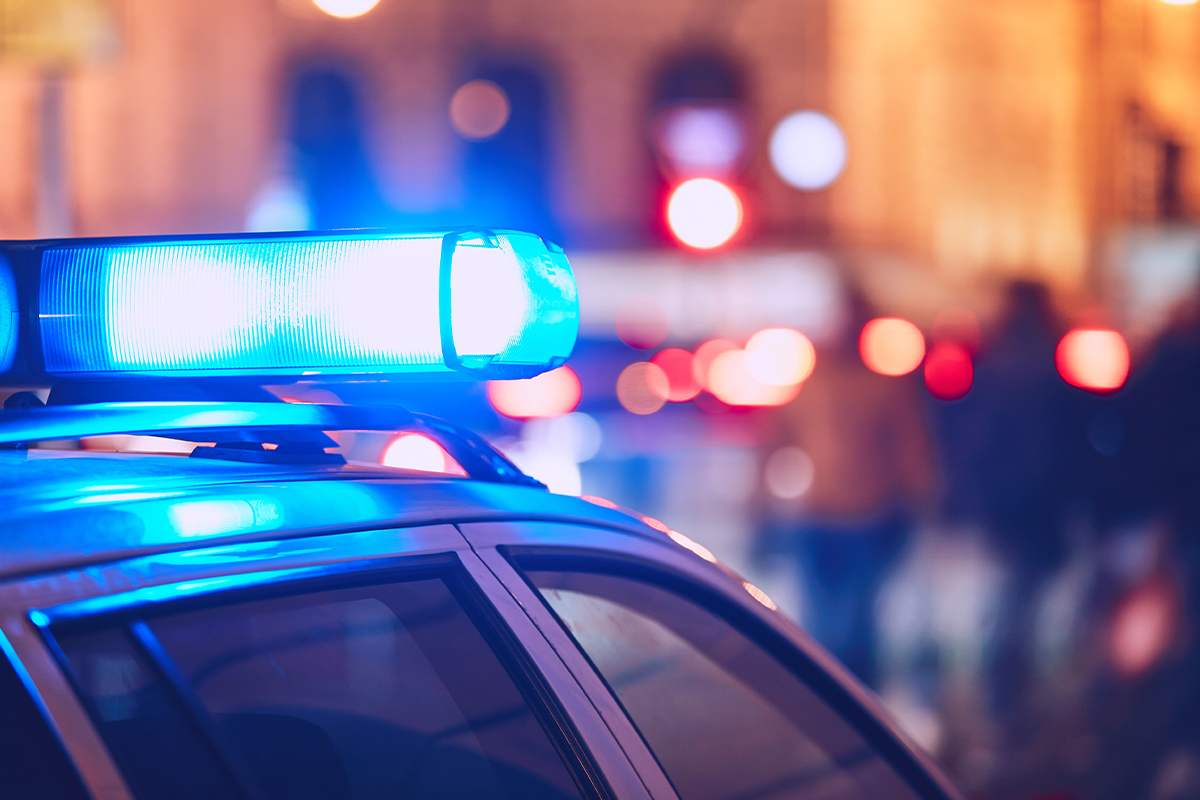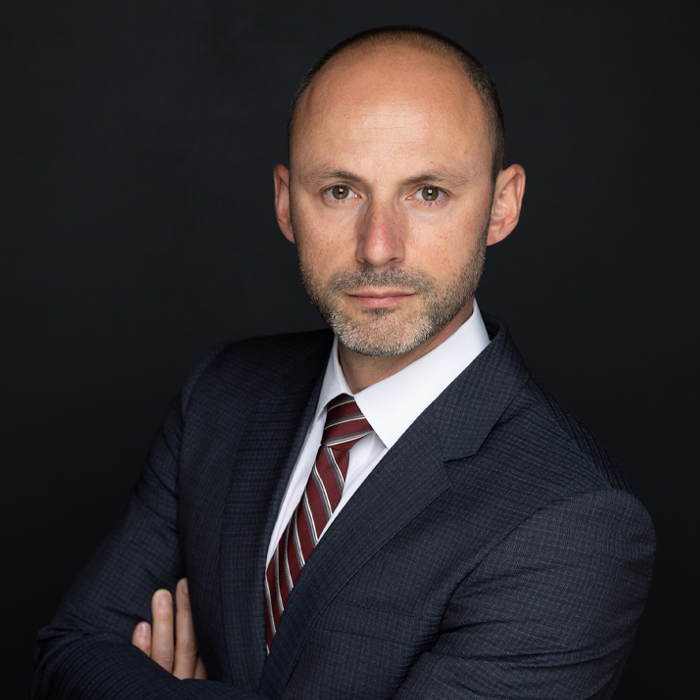If you are facing failing to stop for police charges, you need a criminal defence lawyer in Calgary to look at your case as soon as possible.
Failing to stop for police is when a police officer signals for a driver to stop their vehicle, and the driver deliberately continues driving or attempts to evade the police.
This is a hybrid offence, which means the Crown prosecutor can choose to treat it as either a summary or indictable offence depending on the circumstances and severity of the incident. If you want to know more about how criminal charges are processed, you can read about the Court Process in Calgary.
For a first offence, when prosecuted summarily, the punishment can include a fine of up to $5,000 and imprisonment for up to two years. If prosecuted by indictment, the maximum penalty is imprisonment for up to five years.
In addition to criminal penalties, a conviction will result in a driving prohibition. You’ll also receive demerit points and face substantially increased insurance premiums.
Strategic Criminal Defence is a top Google-rated criminal defence firm in Calgary, with over 600 5-star reviews. Our firm, and our experienced legal team, have defended clients in over 10,000 criminal cases (view our successful cases). Leveraging our extensive network of lawyers and decades of experience, we craft defence strategies to help those accused of failing to stop for police beat the charge.
The lawyers at Strategic Criminal Defence are both highly experienced and dedicated to defending your rights and future in the face of these charges. Contact a Calgary lawyer today by calling (403) 719-6410.
Key Takeaways
- When a driver doesn’t stop for police, they are breaking the law.
- The law says you have to pull over if the police use lights, sirens, hand signals, or other clear signs.
- This is a hybrid crime with no mandatory minimum jail sentence. The maximum time someone can spend in jail is two years (for a summary offence) or five years (for an indictable offence).
- If someone gets hurt or killed while trying to get away from the police, the penalties increase dramatically.
- You will also have to stop driving for at least a year, and provincial authorities often give longer suspensions.
- Most bail conditions say you can’t drive, you have to give up your driver’s licence, and you have to check in with the police on a regular basis.
- You can win these charges if you have a good legal defence, especially if you didn’t know the police were signalling you, had a good reason, or if the police broke your Charter rights.
How Our Lawyers Help With a Failing to Stop for Police Charge
- Our lawyers can help you communicate to police and write down your side of the story before any charges are filed. This is very important if you had a good reason not to stop right away.
- Our team can help you not say anything that could hurt your case, especially when it comes to if you knew about police signals or why you kept driving.
- It’s very important to collect evidence for your defence. Your Strategic Criminal Defence lawyer will get police dash cam videos, radio communications, and witness statements that could show you weren’t driving dangerously or that there was some confusion about whether the police were signalling you specifically.
- We can help you get through the complicated criminal justice system. This includes things like going to court, reviewing your disclosures, and having your driver’s licence suspended.
Examples of Failing to Stop for Police Charges
If people in Calgary don’t stop for police, they could get into these real-life situations:
- The lights and siren of a police car behind a car on the highway go on. The driver sees the police but doesn’t stop for a few kilometres. When asked, they say they saw the police lights but wanted to stop somewhere else, they could found guilty of section 320.17 of the Criminal Code.
- A police car with flashing lights follows a driver who runs a red light. They don’t stop, instead, they speed up quickly, weave through traffic, and run more red lights to try to get away. After a high-speed chase, the police finally catch the driver.
- The police try to pull over a driver whose taillight is broken, but the driver is scared because their licence is suspended. They don’t stop, instead, they drive home at a normal speed with police cars with lights and sirens behind them. They get arrested because they stop when they get to their driveway.
Consequences of a Failing to Stop for Police Charge
If you don’t stop for the police, you could be charged with a hybrid offence.
- The Crown prosecutor can either file an indictment (for more serious cases) or a summary conviction (for less serious cases). This choice will change the punishments that are available to you.
- For a basic failing to stop charge, there is no minimum jail time or fine that has to be given. However, if you are found guilty by summary conviction, you could spend up to two years in jail and/or pay a fine of up to $5,000. If the offence is proceeded by indictment, the longest sentence possible is five years in prison.
- If you don’t stop and someone gets hurt or dies, the punishments are more severe. If you drive dangerously and hurt or kill someone while being chased by the police, you could go to jail for up to 14 years or even for life.
- You will also face driving prohibitions connected to this charge
- If you are convicted of a crime, you will have a criminal record that can make it harder to find work, especially if you drive for a living. It can also make it harder to travel to other countries because running away from the police is a serious crime that can keep you from crossing the border.
Failing to Stop for Police Charge Defences
There are some good defences you can use to fight these serious charges, even though every case is different.
You may be able to fight charges of not stopping for the police in these ways:
- You are guilty if you know the police are trying to pull you over and you don’t stop. A lot of things could keep a driver from seeing the police lights. You might not have heard the sirens because you were listening to loud music, paying attention to heavy traffic or bad road conditions, or you might have thought the police were signalling a nearby driver.
- The law understands that there are times when drivers are very anxious about where and when to stop. This could be a good reason if you kept driving but went at a reasonable speed, used your hazard lights to show that you were going to pull over, and stopped in the first public or well-lit place.
- The courts may agree with your choice to keep going to the hospital instead of stopping for the police if you or a passenger were having a serious medical problem that needed immediate care.
Failing to Stop for Police Charge Investigation
- While pursuing the car, the police will call their dispatch centre and begin recording the exact time and way they told the driver to stop, like by using sirens, emergency lights, or hand signals.
- Most police cars have cameras on the dashboard and sometimes on the outside that record everything that happens. This video evidence is very important because it shows the officer signalling and the driver not stopping.
- They will also record how far they went after the lights came on and what happened at the end of the chase. For example, did the driver finally stop, get pulled over by the police, or crash?
- The police will document what someone said after they stopped or arrested them, especially any excuses they gave for not stopping. These explanations (or lack of them) are important evidence.
Bail Conditions for Failing to Stop for Police Charges
If you are released on bail, you’ll be given conditions you have to follow.
- Courts usually won’t let you drive at all while you’re facing these charges because the crime has to do with driving.
- You may have to give the police or the court your driver’s licence as part of your release.
- You will have to check in with your bail supervisor or police station on a regular basis. You might have to check in once a week or once a month to show that you’re following the rules and haven’t left the area. These reporting conditions might happen more often and be stricter if there was a long chase or dangerous driving.
- If you plan to move, you need to let the police and the court know where you live now. Some bail orders may say that you have to be home at certain times.
- If there is any evidence that drugs or alcohol were involved in the event, the court will probably limit your use of them.
- If you break any of these bail conditions, you are committing a crime called breach of undertaking or recognizance. If this happens, you might lose your bail and have to stay in jail until your trial. It could also mean that you get more criminal charges, and each one would have its own punishment.
For more information, visit our page on The Bail Hearing Process in Calgary.








